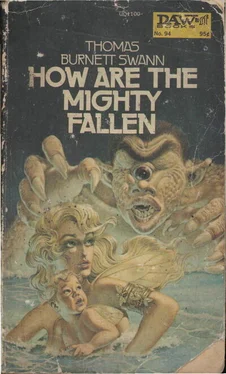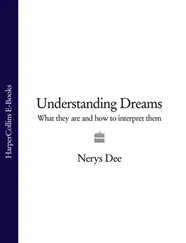Thomas Swann - How are the Mighty fallen
Здесь есть возможность читать онлайн «Thomas Swann - How are the Mighty fallen» весь текст электронной книги совершенно бесплатно (целиком полную версию без сокращений). В некоторых случаях можно слушать аудио, скачать через торрент в формате fb2 и присутствует краткое содержание. Жанр: Фэнтези, на английском языке. Описание произведения, (предисловие) а так же отзывы посетителей доступны на портале библиотеки ЛибКат.
- Название:How are the Mighty fallen
- Автор:
- Жанр:
- Год:неизвестен
- ISBN:нет данных
- Рейтинг книги:4 / 5. Голосов: 1
-
Избранное:Добавить в избранное
- Отзывы:
-
Ваша оценка:
- 80
- 1
- 2
- 3
- 4
- 5
How are the Mighty fallen: краткое содержание, описание и аннотация
Предлагаем к чтению аннотацию, описание, краткое содержание или предисловие (зависит от того, что написал сам автор книги «How are the Mighty fallen»). Если вы не нашли необходимую информацию о книге — напишите в комментариях, мы постараемся отыскать её.
How are the Mighty fallen — читать онлайн бесплатно полную книгу (весь текст) целиком
Ниже представлен текст книги, разбитый по страницам. Система сохранения места последней прочитанной страницы, позволяет с удобством читать онлайн бесплатно книгу «How are the Mighty fallen», без необходимости каждый раз заново искать на чём Вы остановились. Поставьте закладку, и сможете в любой момент перейти на страницу, на которой закончили чтение.
Интервал:
Закладка:
“You must hide for the night,” he said. “If my father acted through madness, he may forget and welcome you back to his court. But if he truly believes his accusations, you must leave the country. Go to Achish in Gath. He has promised you asylum.”
“Come with me, my brother. You too are in danger.”
“I must stay to soften my father’s heart. He will not kill me no matter what he believes. Or Achish believed.” (We could have followed him to the sea, thought David.) “Remember, he has no proof. I do not think that Rizpah has told him anything. Tomorrow I will go to the forest beyond Gibeah to practice with my bow. If the arrows fall to the right of my target, you will know that the king’s heart is hardened against you.”
“And we will meet in the forest?”
“Yes. While I send my little armorbearer to fetch the arrows, we can briefly talk.”
“My brother, I would risk Sheol rather than leave you here. Without you life is an empty gourd, a well which is stopped with sand.”
“But you are the heir to the throne! Samuel himself anointed you king.”
“But I never told you that!”
“Half of the country, including my father, knows. You are Yahweh’s chosen.”
“That vengeful desert god-”
“He has much power in these parts. And if he has chosen you even against your will, he is not to be denied. Hate him if you must Serve him for the sake of Israel. He never asked to be loved. Only to be obeyed.”
They embraced with the mute urgency of those about to die. At the last, there were no more words, only an empty gourd and a well which was filled with sand.
CHAPTER ELEVEN
The sunflowers stood as tall as a man, field after field of them, their faces like those of young golden gods; Jonathan’s face multiplied to infinity. When will he come? When will he come, bringing his own dear presence and Saul’s forgiveness? For three days David had lived in hiding, sheltered by night in a small summer house trellised with grapevines, amid a vineyard adjacent to the flowers. It had been a brief exile… It had seemed like forty years in the Wilderness.
He heard their voices before he saw them, the low, soft accents of Jonathan, the high, piping voice of the Midianite lad, who had broken his leg on a raid and was left to die, till Jonathan found him and trained him to carry his bow.
“I will shoot the arrows at yonder knoll,” said Jonathan.
“When the last arrow is fired, fetch them for me, Pepi, and return to the palace. My father has asked me to inspect his vineyards for him.”
The child sighed; he wanted to stay with his master. “May I inspect them with you? My father was a vintner before he became a raider.” (David, impatient, tore a vine from the wall and kneaded the green pulp in his hand.)
“Not this time, Pepi.”
“I’m always being sent somewhere,” the child protested. “You won’t even let me fight the Philistines with you. Or chase the rene-renegade David.”
“David is an exile, not a renegade. You would love him if you knew him as I do.”
“I do know him, and I don’t like him at all. You were always with him until he married the princess, and he never even noticed me.”
“Do as I say. Now.” Jonathan’s authority was quiet but implacable.
Twang, twang, twang, sang the bow, like a hoarse-throated lyre, as it scattered its arrows to the right of the knoll.
“Ah, my aim is off today, Pepi.”
“Perhaps my lord drank too freely at the Feast of the New Moon,” Pepi teased him.
“Perhaps,” said Jonathan, and David imagined the kindly smile, the pat on the boy’s shoulder from one whose greatest intoxication had come from love.
Jonathan approached the summer house with careful, measured steps, lifting a vine aside from the path, pausing as if to inspect a tumbling trellis. Pepi, though out of sight, could still hear Jonathan’s steps and he must not suspect his prince, who had “come to inspect a vineyard,” of racing across the fields to meet a renegade. Eons seemed to pass, the world was spun out of chaos; Adam too, and Eve from Adam’s rib; in the time which Jonathan took to join David.
They had been separated for a mere three days, but they looked at each other as if some change, some diminishment of love, had been wrought by the separation; and then, reassured, embraced with a wild and tender yearning.
“You have grown thinner, my brother,” said David. “Do you bring ill tidings?” Sunlight above the trellis dappled Jonathan’s hair. (Even the sun is jealous of his gold. It must summon shadows to dim the wonder.)
“Your fears have come true,” said Jonathan. “My father wishes you dead. He has told me to kill you.”
“Why?” asked David. “Why, Jonathan? I would have served him until I died!”
“He is envious because the people love you and sing of your exploits when they meet at the wells. After you fled, he accused us again of plotting treason against him.” “And the other?”
“He said nothing, though I think it was in his mind. I thought at first: His threat of treason is the jealousy of a madman, and his madness will pass. But the madness has indeed become the man. He supposed us allied against him with the Philistines. Why, he even hurled his spear at me! Fortunately his aim was poor. Ahinoam spoke to him then; she had come from her house in the country when she heard of his wrath against us. She reminded him of Michmash and how I had helped him to win, and how he had summoned you to sing for him from your father’s flocks. At first he called her a whore of Ashtoreth-he must have been thinking of Rizpah, who fluttered her hands in her usual helpless way. But she looked him straight in the eye and said, ‘You may call me a whore all you like. Yahweh knows, I’ve had reason to become one since you sent me from your couch. You may hurl your spears at me and wave your hands in rage. Nevertheless, I will swear at the cost of my life to the innocence of my son Jonathan and his friend David in any plots against your throne.’ Her anger quieted him. He slumped on the throne and muttered, ‘Go now and leave me in peace, all of you.’
“For three days I tried to see him-in vain. I was always told by his guard, The king is sleeping,‘ or The king is taking his ease against the heat,’ or The king is planning his winter campaign against the Philistines. Today he sent this message: ‘Return to my court with David’s head on a stake.’” “It is a clever and persistent demon which haunts him,” said David. “Even you and Ahinoam are feeble exorcists in such a case. His madness allows him to do the things which his natural kindness forbids. He is very strong. But Samuel sapped his confidence and filled him with fear of Yahweh. Made him feel guilty when he was guiltless or show cruelty when he would have liked to be kind. And the demon flourishes. But what of Michal?”
“She is shut in her quarters. Saul refuses to see her, because she took your part. I called to her window from the ground. She said: Tell David to send for me in the heat of day or the dead of night I will arise and follow him even to Sheol.”
“If I had loved her better, perhaps it would not have gone so hard for her. At least she would have had a blither memory during my exile. I have not used her well, Jonathan.”
“You were a kindly deceiver, David. She always believed that she was first with you. Would you have wanted to love her best?”
“I would change nothing. I regret nothing except that we did not meet as boys. I chose a god above a mortal, and mortals must weep. It is the condition of life.” He looked into his heart and saw how little he loved the princess, how easily and guiltlessly fooled her; how many women he would love and forsake, if only because they loved him.
Читать дальшеИнтервал:
Закладка:
Похожие книги на «How are the Mighty fallen»
Представляем Вашему вниманию похожие книги на «How are the Mighty fallen» списком для выбора. Мы отобрали схожую по названию и смыслу литературу в надежде предоставить читателям больше вариантов отыскать новые, интересные, ещё непрочитанные произведения.
Обсуждение, отзывы о книге «How are the Mighty fallen» и просто собственные мнения читателей. Оставьте ваши комментарии, напишите, что Вы думаете о произведении, его смысле или главных героях. Укажите что конкретно понравилось, а что нет, и почему Вы так считаете.












